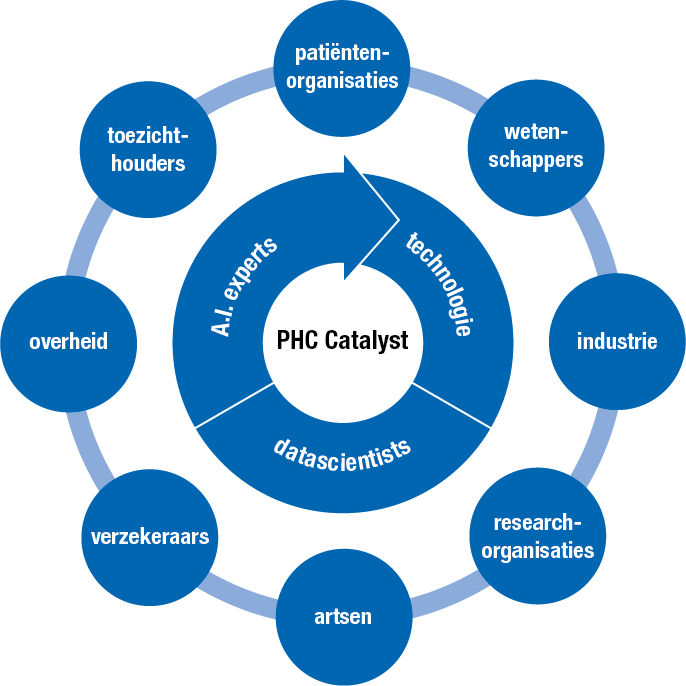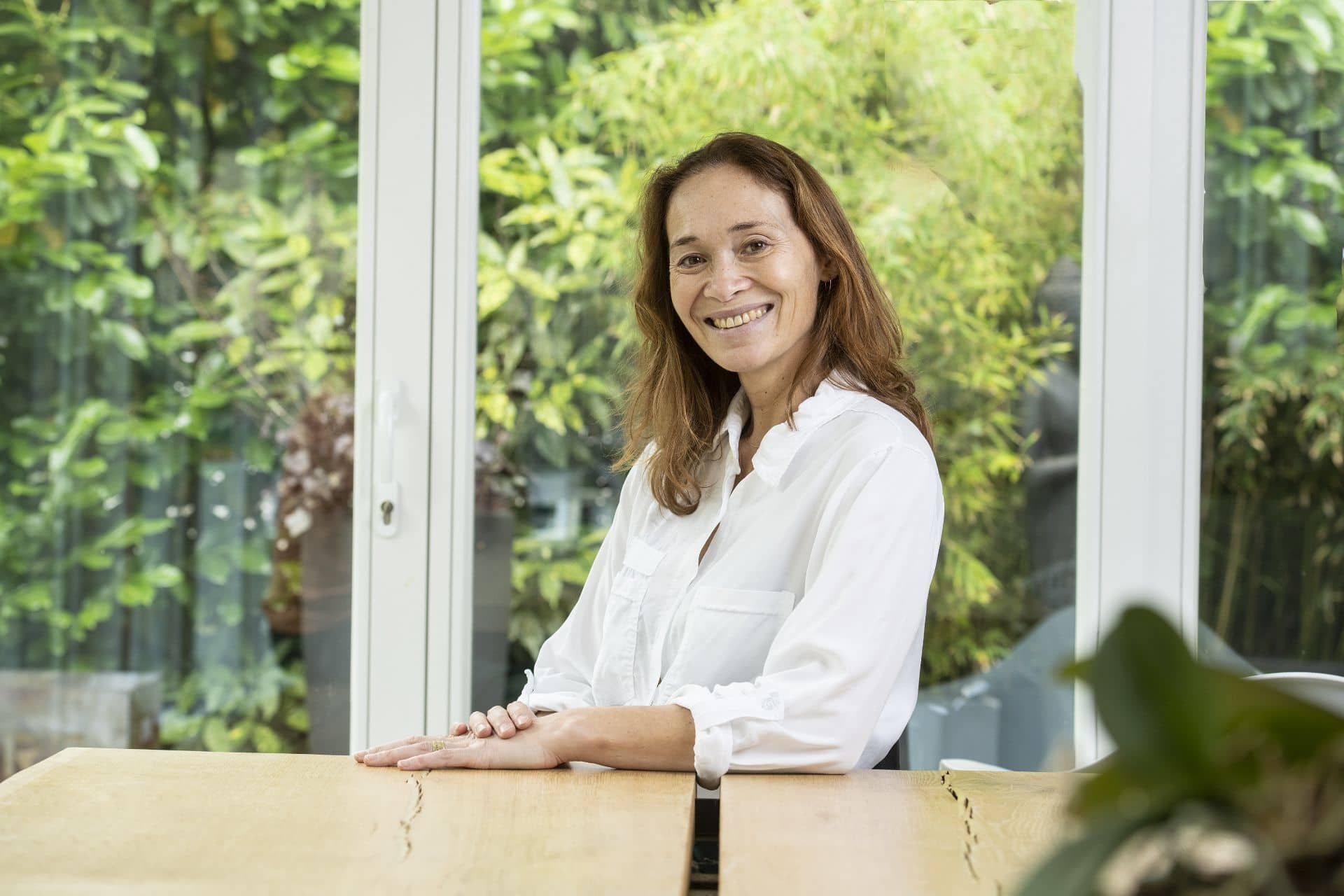
Article
Future-proofing healthcare together
We are in the living room of three-time Paralympic snowboard champion Bibian Mentel in Loosdrecht and talk about the importance of personalised care in the Netherlands.
This conversation took place in 2019. Bibian Mentel died on the 29th of March 2021.
Together with Judith van Schaik, PHC Business Development Lead Roche Netherlands, and Paul Iske, Professor of Open Innovation at Maastricht University, I listen to Bibian's powerful words. "How fat it would be to solve a disease like cancer. I have had cancer for 19 years. It's bizarre to see with my own eyes that in healthcare there is still not enough knowledge being shared and communicated with."
From willing to able
And that is exactly what it is all about for PHC (Personalised Healthcare) Catalyst Alliance: the alliance wants to accelerate the transition to personalised healthcare in the Netherlands. Judith: "Instead of treating the symptoms, we want to treat the cause of the illness in a targeted way and eventually we hope to prevent illness. Rapid technological developments make personalised care possible. The biggest problem is that our healthcare system lags behind: it assumes 'one size fits all' instead of the individual, and technological innovations are not implemented or not fast enough. We need a change of thinking from wanting to being able to."
From 'one size fits all' to personalised treatment
"As an alliance, we start from the individual", Paul adds, "We often deal with complex conditions and complex patients. Using big data and artificial intelligence, we need to bring out the individual differences between patients and learn to recognise patterns. This leads to insight into the cause of illness at an individual level. Based on these new insights, it is possible to treat the individual in a targeted manner." Judith: "It's about the right treatment, to the right patient, at the right time: instead of 'one size fits all' a personalised treatment."

Connecting-the-dots
Such a transition to personalised care does not happen overnight. Paul: "There are many interests at play in healthcare. We also see practical obstacles. Not everyone is willing or able to share medical and other relevant data. We are also dependent on patients themselves. Fortunately, they are increasingly willing to share personal data with others. We are choosing not to wait for the healthcare system to change. We are just getting started. For example, we want to understand why a medicine for lung cancer works for one patient but not for another. By collecting as much data as possible, including data on failures, we get closer to finding solutions."
In the Netherlands, there are many separate initiatives in the field of PHC. The PHC Catalyst Alliance wants to accelerate the transition to personalised care by connecting all the available intelligence and making optimal use of it. Connecting-the-dots: on paper, in people's heads and digitally. "It's about making knowledge transferable and accessible to everyone," says Judith. "That's what makes us all better."
Matter of doing
Bibian gives a poignant example. "In 2016, I was given up by the doctor at the hospital where I was being treated. My husband Edwin then started googling for an alternative himself. It turned out that there was a device in a hospital 30 kilometres away that they could help me with. My doctor knew nothing about it. And you see, I'm still here.
Partly because of examples like these, the healthcare professionals affiliated with the PHC Catalyst Alliance are intrinsically motivated to accelerate personalised care in the Netherlands. "Medical science has achieved a lot, but the application of that knowledge is difficult," says Paul. "That's why it's high time to monetise all the untapped knowledge. We are stupid if we don't." "Indeed," Judith adds. "This is the moment. The technology is there, now it's a matter of doing it. Together we are going to make healthcare future-proof."

"My radiotherapist recently told me that I fall outside all protocols. Yet he dares to continue treating me, because he knows me well. He knows how I am in life and how I am physically. His colleagues don't know the person behind Bibian Mentel, so they would probably make a different choice now that I have growing metastases again. Fortunately for me, the person behind the patient is leading for him."
- Ron van Berkel
- Article, Culture
- November 22, 2021
- No Comments

